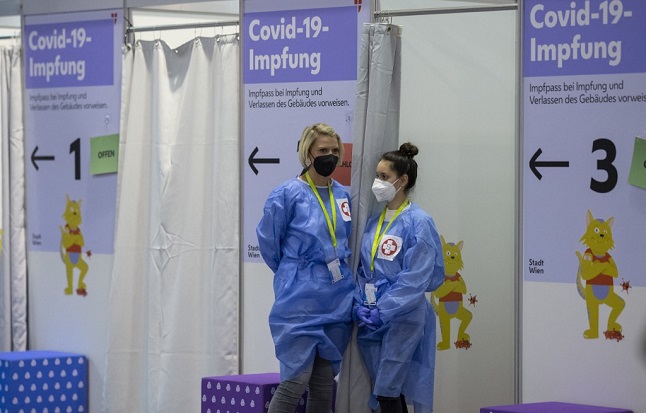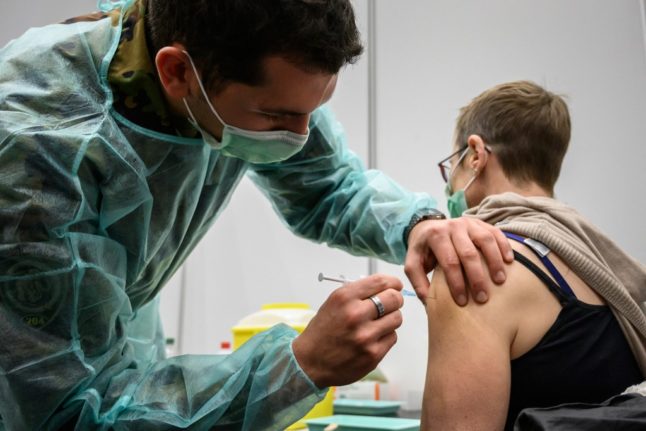In the past week, Austria has hit a Covid-19 vaccination milestone – 70 percent of the total population has now received two doses of the vaccine.
According to figures from the Austrian Agency for Health and Food Safety (AGES), this means 74.02 percent of the eligible population (aged five and above for whom Covid vaccinations are approved) is now protected.
And, as of December 27th 2021, 77.63 percent of the eligible population has received at least one dose, so the number of fully vaccinated people is expected to increase in the coming weeks.
READ MORE: Where to find the latest Covid-19 information for your region of Austria
Currently, Burgenland is the most heavily vaccinated federal state at 75.6 percent, and Upper Austria is the least vaccinated state at 66 percent.
Third doses, or booster shots, are now available for those that have already received two doses of the vaccine (a minimum of three months prior).
A year of Covid-19 vaccinations in Austria
The vaccination roll out started in Austria on December 27th 2020, with the first doses administered to residents and staff in retirement and nursing homes.
In early 2021, health workers and people in vulnerable categories were called up for vaccination, before it was made available to the general public in April.
FOR MEMBERS: What will happen with the pandemic in Austria in 2022?
At the time of the announcement of the first vaccinations last year, then-Health Minister Rudolf Anschober (Greens) described the step as a “turnaround in the fight against the pandemic”.
However, a year ago the Austrian federal government was focused on educating the population about the benefits of getting vaccinated against Covid-19, as opposed to making vaccination mandatory.
This approach has since changed due to plateauing vaccination figures and high Covid-19 case numbers in recent months, and the government is now planning to introduce a mandatory vaccination measure (Impfpflicht) in 2022.



 Please whitelist us to continue reading.
Please whitelist us to continue reading.
Member comments